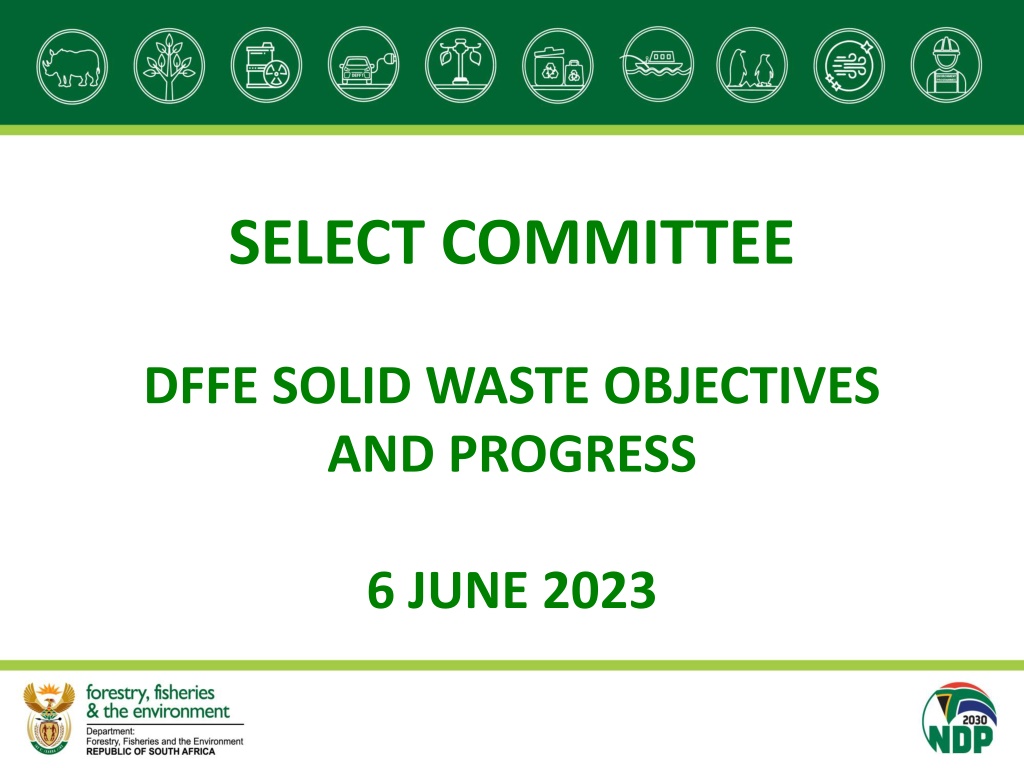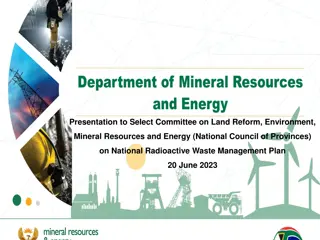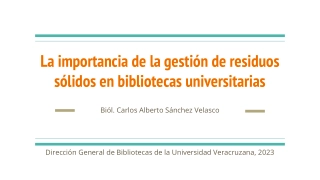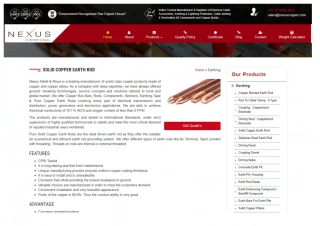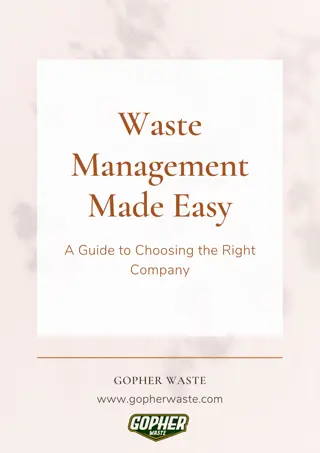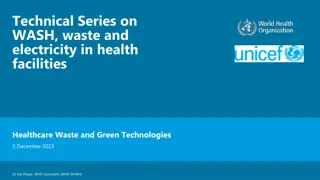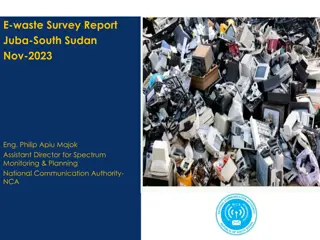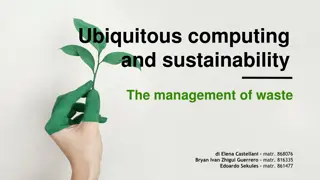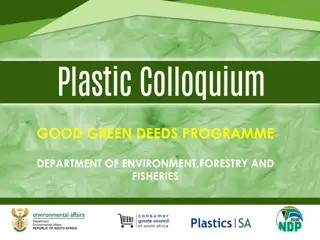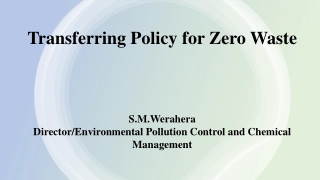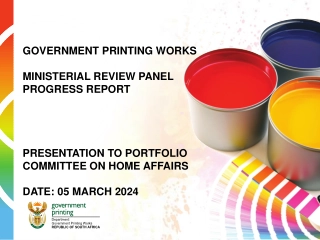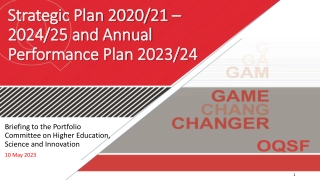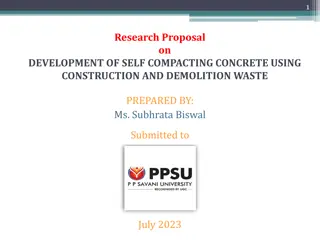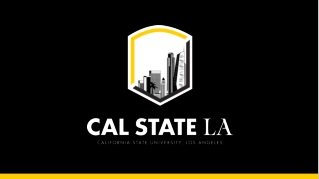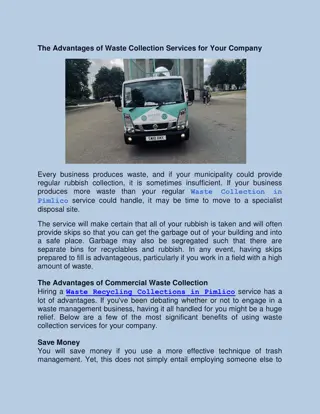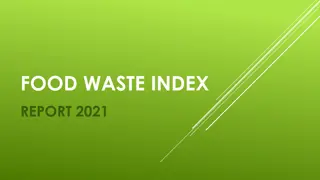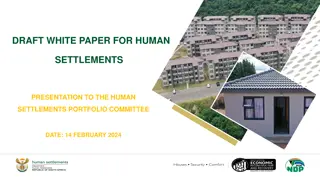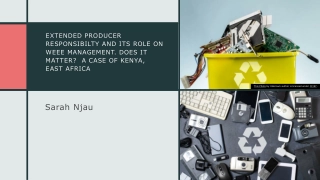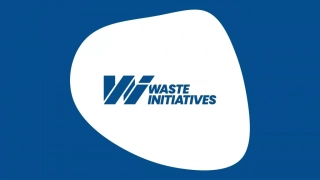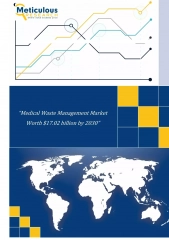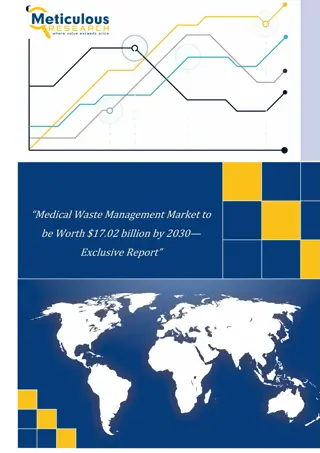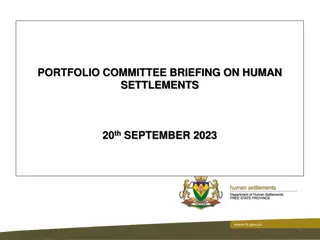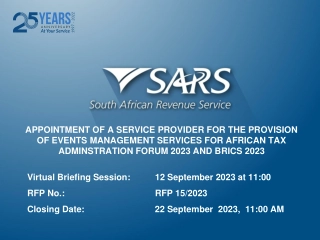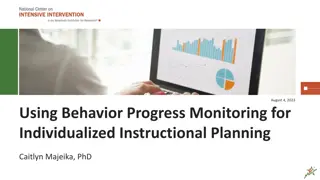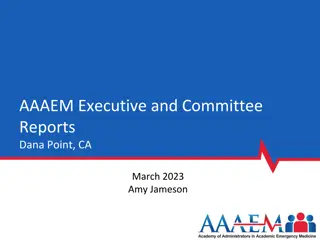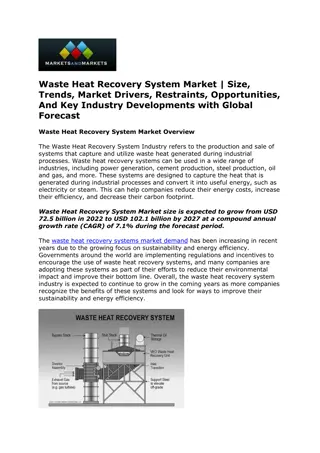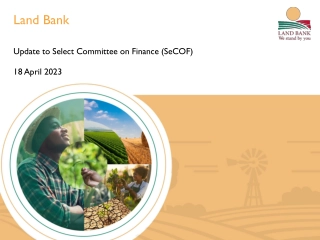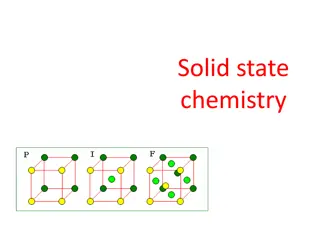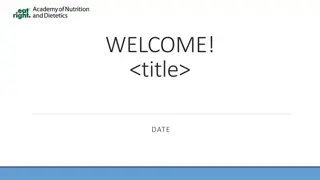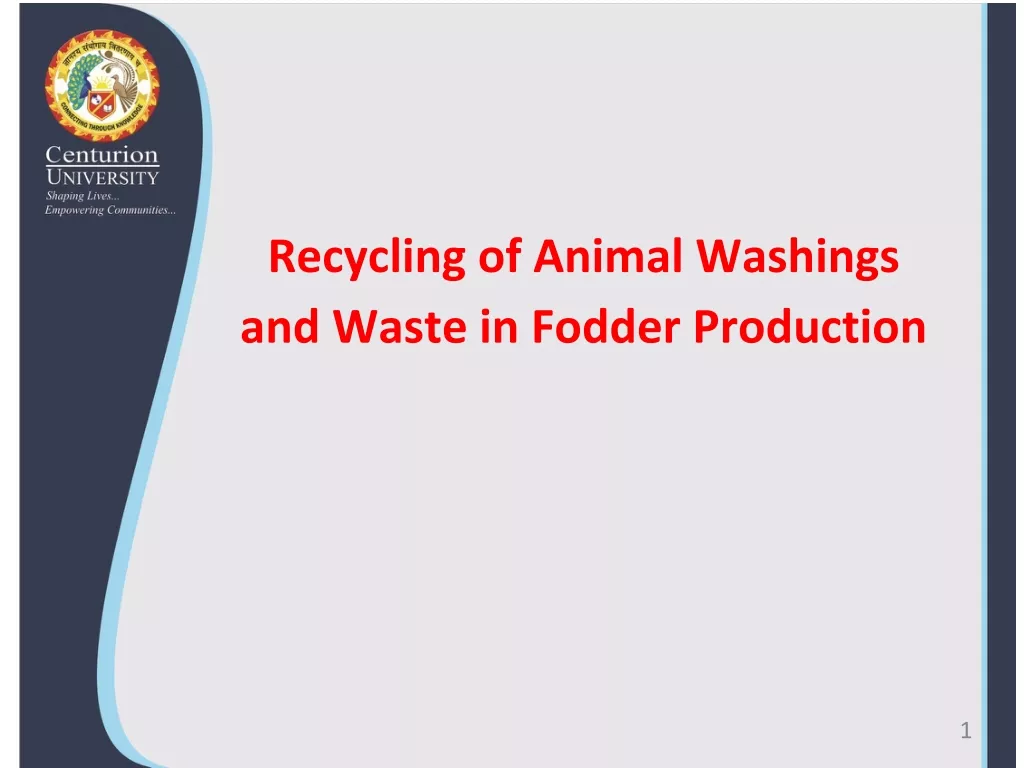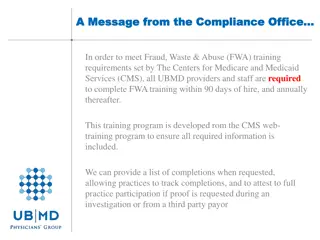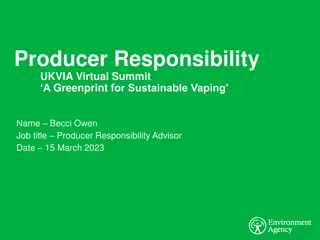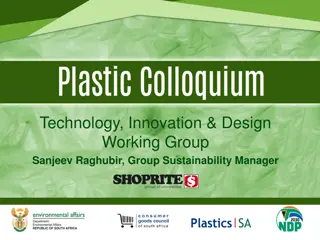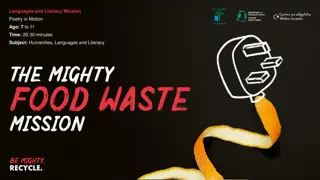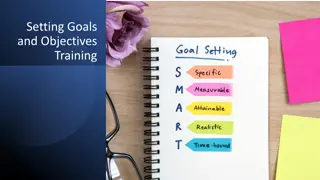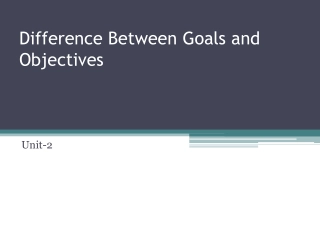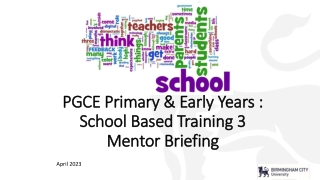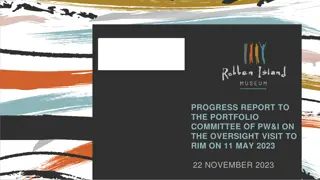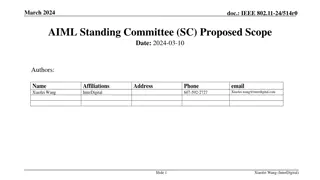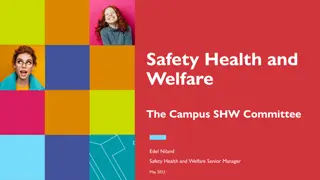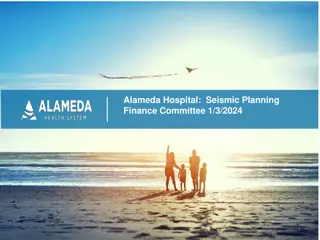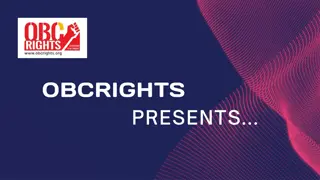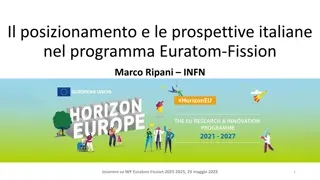Select Committee Briefing on Solid Waste Management Objectives and Progress
This presentation outlines the purpose, legislative mandate, and strategic policy instruments related to solid waste management in South Africa. It covers key areas such as national and provincial responsibilities, waste management challenges, and recommendations for improvement. The content emphasizes the importance of aligning policies and regulations to promote effective waste management practices at local, provincial, and national levels.
Select Committee Briefing on Solid Waste Management Objectives and Progress
PowerPoint presentation about 'Select Committee Briefing on Solid Waste Management Objectives and Progress'. This presentation describes the topic on This presentation outlines the purpose, legislative mandate, and strategic policy instruments related to solid waste management in South Africa. It covers key areas such as national and provincial responsibilities, waste management challenges, and recommendations for improvement. The content emphasizes the importance of aligning policies and regulations to promote effective waste management practices at local, provincial, and national levels.. Download this presentation absolutely free.
Presentation Transcript
SELECT COMMITTEE DFFE SOLID WASTE OBJECTIVES AND PROGRESS 6 JUNE 2023
Purpose To brief Select Sommittee on solid waste management objectives in individual provinces performance, challenges and successes
OUTLINE Purpose Legislative Mandate Strategic Policy Instruments Waste Stream Notices, Norms and Standards and Regulations National Waste Management Strategy 2020 Roles of National, Provincial and Local Government Waste Management Challenges Provincial Waste Status Quo Provincial Interventions Recommendations 3
LEGISLATIVE MANDATE The Constitution of the Republic of South Africa (Act 106 of 1998); Section 24, A right to an environment that is not harmful to health and well being and to have the environment protected SCHEDULE 4: FUNCTIONAL AREAS OF CONCURRENT NATIONAL AND PROVINCIAL LEGISLATIVE COMPETENCE PART A: - Environment SCHEDULE 5: FUNCTIONAL AREAS OF EXCLUSIVE PROVINCIAL LEGISLATIVE COMPETENCE PART B: The following local government matters to the extent set out for provinces in section 155 (6) (a) and (7) - Refuse removal, refuse dumps and solid waste disposal 4
LEGISLATIVE MANDATE Cont. National Environmental Management: Waste Act, 2008 (Act No. 59 of 2008) (NEMWA) in areas of concurrent function provides Minister with national responsibility and MEC to be responsible for policies in their provinces and municipalities to use their by-laws in the management of waste in their municipalities. NEMWA and its Regulations also provide for Minister, National Government and MEC s for Provincial responsibilities to implement sections of the regulations that relate to their specific areas or province. NEMWA and its Regulations also provide for Municipal Council responsibility aligned to Municipal Systems Act, 2000 (Act no 32 of 2000) on local government responsibilities to implement specific sections in the respective jurisdiction. The National Waste Management Strategy, 2020 (NWMS 2020) provide roles of different role-players including national government, provinces and municipalities. 5
STRATEGIC POLICY INSTRUMENTS 1st National Waste Management Strategy, 1999 2nd National Waste Management Strategy, 2012 3rd Third National Waste Management Strategy, 2020 Integrated Pollution and Waste Management Policy, 2000 National Waste Baseline Information Report, 2011 National State of Waste Report, 2018 Policy for the Provision of Basic Refuse Removal Services to Indigent Households, 2011 National Environmental Management: Waste Act, Act 59 of 2008 National Environmental Management: Waste Amendment Act, Act 26 of 2014 (NEMWA) 6
WASTE EXTENDED PRODUCER RESPONSIBILITY (EPR) NOTICES AND/OR PLANS The following Notices have been developed and implemented:- Section 18 Notice for paper, packaging and some single use products Section 18 Notice for electrical and electronic equipment Section 18 Notice for lighting equipment Section 18 Notice for lubricant oils Section 18 Notice for batteries Section 18 for pesticides The following Plan is under finalisation:- Section 29 Tyre Industry Waste Management Plan 7
2022/23 WASTE DIVERSION THROUGH EXTENDED PRODUCER RESPONSIBILITY (EPR) IMPLEMENTATION PRIORITISED WASTE STREAMS DIVERSION (TONS) Paper and Packaging 1 658 345 Electrical and Electronic Equipment 41 147 Lighting 195.8 8
WASTE NORMS AND STANDARDS The following Norms and Standards have been developed and implemented: Assessment of Waste Landfill Disposal, 2013 Domestic waste Collection, 2013 Disposal of waste to Landfill, 2013 Remediation of Contaminated Land and Soil quality in the Republic of South Africa, 2014 Storage of Waste, 2013 Extraction, Flaring or Recovery of Landfill Gas, 2013 Scrapping or Recovery of motor vehicles, 2013 Sorting, Shredding, Grinding, Crushing, Screening, Chipping or Baling of General Waste, 2017 Organic Waste Composting, 2020 Organic Waste Treatment, 2022 9
NWMS 2020 NWMS is developed i.t.o Section 6 of the Waste Act. The NWMS is implemented over a period of five years. The first NWMS of the NEMWA came into effect in 2012 and had 8 goals The revision of 2012 NWMS was initiated in 2017 The revised 2020 NWMS was gazetted for implementation on 28 Jan 2021 All organs of state, holders of waste, civil society, private sector are obligated to implement the strategy. 10
NWMS 2020 The strategy incorporates the waste hierarchy and circular economy in accordance with the following Three (3) Themes: 1. Waste Minimisation: 45% of waste diverted from landfill within 5 years; 55% within 10 years; and at least 70% within 15 years leading to Zero-Waste going to landfill. 2. Effective and Sustainable Waste Services: All South Africans live in clean communities with waste services that are well managed and financially sustainable 3. Compliance, Enforcement and Awareness: Mainstreaming of waste awareness and a culture of compliance with zero tolerance of pollution, litter and illegal dumping 11
ROLE OF NATIONAL GOVERNMENT NEMWA Set legislative and other measures to protect the environment from the impacts of waste. These measures include but are not limited to; identifying products for extended producer responsibility, developing the regulations, norms and standards, National Waste Management Strategy, Waste Pickers Integration Guidelines, and Waste Recycling Enterprise Support Programme Prepare an integrated waste management plan (NWMS) for South Africa on 4R and others Report on NWMS implementation Approve Integrated Waste Management Plan (IWMP) annual reports Set national norms and standards Designate a Waste Management Officer Declaration of priority waste Licensing authority for hazardous waste facilities Establish a waste information system 12
ROLE OF NATIONAL GOVERNMENT NWMS The DTIC and the NCPC-SA which have an interest in the socio- economic impact of EPR schemes and a critical role to play in promoting waste minimisation and the circular economy through cleaner production and industrial symbiosis, as well as an interest in associated industries. The DTIC and SABS on standard setting, labelling and consumer awareness of products; The DSI, the CSIR and Technology and Innovation Agency (TIA) in relation to Waste Research, Development and Innovation Roadmap (Waste RDI Roadmap). The Department of Minerals, Resources and Energy (DMRE), which has responsibility for regulation of Waste to Energy projects as they pertain to energy generation. The Department of Agriculture, Land Reform and Rural Development (DALRRD) which has responsibility for regulation of agriculture, is an important partner in the development and implementation of a strategy to reduce food losses and manage agricultural waste, which represents a significant volume of organic waste with beneficiation opportunities. 13
ROLE OF NATIONAL GOVERNMENT NWMS The Department of Health, which has responsibilities in relation to regulations around food safety that potentially affect handling of food as a waste prevention measure, as well as regulations around Health Care Risk Waste. The Department of Basic Education (DBE) which plays an important role in raising awareness around waste and recycling in schools through the school curriculum. The Department of Transport (DoT) is responsible for regulating the transportation of goods and services and tracking and tracing transboundary waste. The South African Police Service and National Prosecuting Authority (NPA) which have responsibilities in relation to supporting the investigation and prosecution in terms of NEM: Waste Act. 14
ROLE OF PROVINCIAL GOVERNMENT NEMWA Prepare integrated waste management plan Report on IWMP implementation Set provincial norms and standards Designate Waste Management Officers Licensing authority for municipal solid waste facilities Environmental Management Inspectorate that regulates provincial aspects of the NEM: Waste Act May establish a waste information system 15
ROLE OF LOCAL GOVERNMENT NEMWA Prepare an integrated waste management plan for the Municipality Reporting on IWMP implementation Integrating IWMP with IDP Provide services at an affordable price in line with Municipal Systems Act Passing by-laws on waste services (removal, storage and disposal) Designate a Waste Management Officer Provide for receptacles/containers for recyclable waste Responsible for the compliance and enforcement on the By-laws in relation to pollution and waste. Waste generators (through households) 16
CHALLENGES Some of the challenges impeding universal access to waste collection for all households: backlogs in rural areas and informal where services were not historically provided lack of access roads; Lack collection vehicles; lack of infrastructure e.g. central collection points, Low revenue base lack of capacity (staff and staff capacity), Approx. 54 million tones of municipal waste is generated/ annum ~90% of waste collected is disposed of at landfill sites areas Existing landfills sites: Are running out of space at a very fast rate Most of them are not operated in compliance with laws Only 72 % of households have access to waste collection services (StatsSA) of waste Leakage of waste material to the environment through littering and illegal dumping Unsustainable services Waste service backlog Citizenry that is not environmental active Economic Potential of waste sector not fully tapped into- R25.2 billion (CSRI- Waste roadmap) waste collection 17
CHALLENGES ON WASTE SERVICES Integrated Waste Management Plans (IWMPs) are a key planning tool for Municipalities and Provinces to provide universal access of waste collection services. About 50% of Municipalities and Provinces have IWMPs. Waste collection services in Metros range from 70% to just over 90% and the challenge is the informal settlements. Provinces which are mostly rural in nature have waste collection services below 60% as a result of traditional areas. Average access to waste collection service across the country has remained steady at just over 70% over the years. 18
CHALLENGES ON FUNDING FOR WASTE SERVICES Waste not prioritised for funding by municipalities The Department is in the process of conducting a study to investigate possible ringfencing of a portion of the MIG for waste services. 19
Summary of Provinces and Municipalities with Integrated Waste Management Plans (IWMPs) IWMP are a 5 year plan for municipalities to improve on waste management Province PIWMP Number of Municipalities Number of Municipalities with IWMPs 8 North West Yes 22 Western Cape Yes 29 21 Gauteng Yes 11 3 Eastern Cape Yes 40 20 Mpumalanga Yes 20 17 To be completed by March 2024 To be completed by March 2024 To be completed in 2023 Northern Cape 26 5 Free State 23 20 KZN 55 31 Limpopo Yes 22 11 20
StatusofProvincialIWMPs Province PIWMP North West Yes Western Cape Yes Gauteng Yes Eastern Cape Yes Mpumalanga Yes Northern Cape To be finalised by March 2024 Free State To be finalised in 2023 KZN To be finalised in 2023 Limpopo Yes 21
Implementation of the IWMPs by Municipalities Province IWMP Waste by-laws Gauteng 1 endorsed by MEC 3 approved by Council 2 under review 5 outdated 1 none SAWIS reporting 10 reporting 2 don t WMO designation 10 designated 1 has not designated 4 gazetted 3 outdated 3 draft 2 endorsed by MEC 3 approved by Council 14 under review 4 outdated 2 Gazetted 5 approved 5 outdated 4 draft 2 none 8 Gazetted 16 approved 2 draft 3 due review 23 none 8 reporting 15 don t 17 designated 6 have not designated Free State 17 endorsed by MEC 14 approved by Council 13 under draft Due for review 3 no IWMP 8 Approved by Council 11 under review 1 outdated 22 reporting 22 don t 36 designated 18 have not designated Kwa-zulu Natal 3 Gazetted 5 approved 4 outdated 4 none 3 under review 14 Gazetted 8 outdated 2 draft 6 None 14 reporting 3 don t All 20 have designated Mpumalanga 1 endorsed by MEC 23 approved by Council 6 due for review All 21 are reporting 26 designated 4 have not designated Western Cape 22
Implementation of the Municipal IWMPs Province Eastern Cape IWMP Waste by-laws 1 Gazetted 5 approved 4 draft 2 outdated 21 none SAWIS reporting 22 reporting 13 don t WMO designation 30 designated 9 have not designated 18 endorsed by MEC 3 approved by Council 9 under review 9 outdated 12 endorsed by MEC 1 approved by Council 12 under review 6 outdated 9 Gazetted 10 approved 8 outdated 4 none 8 reporting 23 don t 18 designated 13 have not designated Northern Cape 7 Endorsed by MEC 4 approved by Council 12 under review 3 outdated 2 Gazetted 5 approved 9 draft 7 outdated 1 none 16 reporting 5 don t 13 designated 14 not designated Limpopo 6 endorsed by MEC 6 approved by Council 9 under review 1 outdated 4 Gazetted 1 approved 8 draft 5 outdated 4 none 6 reporting 7 don t 15 designated 7 not designated North West 23
WASTE MANAGEMENT SUPPORT PROGRAMME OBJECTIVES To support the Small Medium and Micro Enterprises (SMMEs) with funding for diverting waste away from landfill, through recycling, job creation and economic growth in municipalities and provinces where these enterprises operate. RESP UPDATE The maximum support allocation is R5M to qualifying beneficiaries/SMME s. The Department concluded the the support for 32 enterprises. Fifty six (56) beneficiaries/SMMEs have benefited from RESP across the 9 Provinces. The Department is cooperating with the Department of Small Business Development on improving waste recycling SMMEs support. 24
RECYCLING ENTERPRISE SUPPORT PROGRAMME (RESP) 2017/18 FY: Total=12 16 2018/19 FY: Total= 12 4 3 2022/23 FY: Total= 32 5 3 Overall Total= 56 1 1 RESP Beneficiaries Western Cape Eastern Cape Northern Cape Free State KwaZulu-Natal North West Gauteng Mpumalanga Limpopo South Africa 6 3 5 3 5 6 4 11 3 16 56 5 3 Awarded a total amount of R105,03 million to 24 previously disadvantaged SMMEs Jobs created = 371 (RESP round 1 and 2) Awarded a total of R157.4 million to 32 previously disadvantaged SMMEs Jobs created 124 and another 913 jobs still to be created 25
WASTE MANAGEMENT SUPPORT PROGRAMME WASTE MANAGEMENT (YELLOW) FLEET SUPPORT INITIATIVE Municipalities over the years have been struggling with increasing household access to waste collection services, illegal dumping and proper management of landfill sites. Reasons amongst others for these challenges have been mainly due to absence of waste management fleet / vehicles. The Municipal Infrastructure Grant, Integrated Urban Development Grant and Urban Settlement Development Grant did not allow municipalities to purchase the yellow fleet from these grants PROGRESS The DFFE in collaboration with CoGTA and National Treasury amended these grants to allow municipalities to purchase the yellow fleet in order to: Increase household access to waste collection services Clear illegal dumping sites Improve the management of landfill sites / waste disposal sites All municipalities can access these grants for the purpose of purchasing the waste management vehicles. 26
WASTE MANAGEMENT SUPPORT PROGRAMME PROGRESS The DFFE purchased yellow fleet on behalf of the municipalities in order to assist municipalities to fulfill the following objectives: Increase of household access to waste collection services Clearing of illegal dumping sites Improvement in the management of landfill sites / waste disposal sites 34 District Municipalities have benefited with 59 Municipalities having received either a Compactor Truck, Skip loader, TLB, FEL; A budget amount of over R164 646 236,07 million is being spent on the purchase of fleet to date. 27
Summary of waste fleet support provided to municipalities in various provinces Number of Municipalities Waste Collection fleet Landfill Management fleet Total budget (R) Province MP 4 4 2 12 870 197,79 WC 8 8 1 22 309 680,40 LP 9 7 4 20 352 133,07 FS 4 3 3 11 823 736,41 GP 2 1 1 3 852 173,25 EC 11 11 0 28 367 867,15 KZN 7 3 4 20 277 377,05 NC 5 2 3 28 367 867,15 NW 8 5 3 16 425 203,80 Total 58 44 21 R164 646 236,07 28
SUMMARY OF DIFFERENT MODES OF SUPPORT PROGRAMMES Institutional & Planning Support: Integrated Waste Management Plans and by-laws development Waste Infrastructure Support: Strategic Infrastructure Projects (Waste Flagship Programme), Working on Waste: Buy Back Centres, Transfer Stations & Material Recovery Facilities Municipal Infrastructure and Urban Settlements Development Grant Policy support Local Economic Development Support: Recycling Enterprise Support Programme Education, Advocacy and Awareness Support: Good Green Deeds Programme and Municipal Cleaning and Greening Programme On-the-job hands-on Training for Councilors and Municipal Officials 29
Targeted Cities and Towns Support 9 Provinces (13 Municipalities) have been identified where there will be fast tracking of the cleaning and greening initiatives:- PROVINCE MUNICIPALITIES Free State Mangaung Nelson Mandela Bay Buffalo City Eastern Cape North West Mahikeng KwaZulu-Natal Msunduzi Northern Cape Sol Plaatjie Gauteng Ekurhuleni, Mogale City, West Rand & Sedibeng City of Cape Town- Greater Cape flats region (Langa, Mitchells Plain, Khayelitsha, Elsies River, Mfuleni, Phillipi & Bonteheuwel) Western Cape Limpopo Polokwane Mpumalanga Mbombela 7
Accelerated service delivery plan for capital towns & cities Immediate interventions aimed at mass employment , cleaning and greening over 12 months, onwards 2. Mass Employment (EPWP) 1. Cleaning and Greening 3. Deployment of fleet The accelerated greening plan will be implemented in partnership with other role players. It targets 13 Municipalities who are mostly capital cities of the nine provinces in South Africa. It will commence in June 2023 and aims to plant 72 500 by the end of March 2024, where 40 000 trees will be planted by end of September (Arbor Month Campaign). The Arbor Month Campaign will be launched in one of the identified Municipalities, i.e. Polokwane in Limpopo Province where 14 500 trees will be planted and the closing event in Mahikeng, North West Province where 10 000 trees will be planted. The cumulative target across municipalities is 18 000 participants (2000 per province) Recruitment in line with EPWP published guidelines by DPWI (60% women, youth and 2% PWDs) Currently there are 682 participants on the ground Support and buy-in from municipalities to reach the target is critical The route cause of illegal dumping in municipalities is due to lack of or insufficient waste collection, and fleet. The illegal dumping hotspots require fleet in order to be cleared and to complement the clean up by EPWP staff Landfill sites require fleet in order to be properly managed in compliance with the license conditions. It s proposed that the 13 municipalities be assisted with the purchase of fleet for improved waste collection, clearing of illegal dumps and management Progress In addressing the issues or challenges mentioned above DFFE has to date transferred Waste Compactor trucks and Skip loader trucks to the municipalities. 13 55% proper landfill desired 6 31
RECOMMENDATIONS It is recommended that the Select Committee:- Notes the solid waste management objectives in individual provinces, performance, challenges and successes 32
